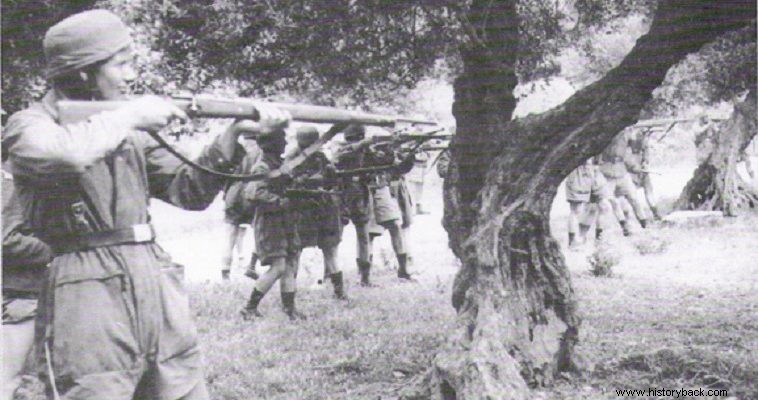
80 Years since the "Battle of Crete", the German airborne operation with the code name "Unternehmen Merkur" (Operation Mercury), the most extensive aerial occupation of the 5th largest island in the Mediterranean, with the significant "firsts" of a World War II airborne operation unique in its kind and scope.
Before, Against and After, one of the leading moments in the first years of the Second Great War, the extensions and the reconstruction project of Historical Events - Responsibilities and Obligations. A great discussion on the occasion of the 80th anniversary of the "Battle of Crete", visible and less accessible Historical moments, which marked Crete, Greece and the Global dimension of the War.
The themes
-The British policy in the Mediterranean and Crete (1935-1941) – The air operations of the Italians in Kefalonia and the Germans in the Corinth Canal, their differentiation from the operation of total occupation of Crete and the last operation of its kind by the Germans, in Leros - Air vs. Sea:Technologies of War in the Battle of Crete
-"Race war":the ideological background of the German soldier during the Battle of Crete
– The fate of the Cretan Division on the Albanian Front. Her sacrifice at Tepeleni. Indifference to her repatriation. The sad fate of the Cretan foot soldiers cut off in Athens (starvation, Larissa camp, executions)
– The "assignment" of the defense of Crete to the British by the Greek government since November 1940. Their attitude towards the defense organization of the island.
– The situation of the New Zealand and Australian troops who, after being rescued with difficulty from mainland Greece, were sent almost unarmed and disorganized to Crete, many of them fighting and falling heroically.
- The associations - real and meaningful. – The measure of British losses
– The contrary reasoning of the Germans and the heavy losses
– The explanation why the evacuation of Crete by the British was always at the forefront of the options.
– Vasilias, Tsouderos and the attempt to establish a "regime" in Crete. Relation of the political unrest, with the uprising of the inhabitants of Crete in the invasion.
– The revolt of the island's inhabitants. The second and much more deafening NO. -German War Crimes during and after the Battle of Crete
- The Pallaic uprising, the spontaneous and heroic participation of ordinary citizens, the unarmed fighters of the Battle of Crete, which is the real innovation of World War II.
-The mass executions of citizens, which already started on the first day of the Battle of Crete and continued until the Fall of 1941 with a tragic death toll of 2,000 with 31 mass executions of this nature.
-The executions of Cretan citizens by the German army, with the invocation of three barbaric Nazi "principles":The principle of asymmetric response, the principle of collective responsibility and the principle of removing the distinction between combatants and civilians.
-Big and small moments, from the "Battle of Crete" in towns and villages of the island with their military and popular defenders
-The Destruction of Kandanou, as a result of the battle in Floria and Farangi. The post-war monument of Shame, of the German Paratroopers
– The great Holocausts in Viannos in relation to those in Kali Sykia and Kallikratis. The Holocaust of the villages of Centerus.
The Holocaust of Anogeia, the mass executions in Malathyros, Sarchos, Damasta and Marathos, Sokara, the execution of the 62 martyrs in Heraklion, the Nazi crimes in Vorizia, Gournolakos Zonianon, Kamares, Lochria, Sakhtouria, Skourvoula, Koxare, Koustogerakos, Sougia, Chania Monastery, Livada, Toplou Monastery, Sitia and countless other villages and places in Crete.
-The project of "forgetting" with the reconstruction of History and the "strange" programs, which lead to the calculation of "disarmament" of the eternal request for the Debts of Germany to the Greek People
In the show, the:
submit their Optics- Giorgos Margaritis, Professor of Modern History at AUTH
– Kostas Mamalakis, Historical Researcher – Scientific Collaborator in Modern History of the Historical Museum of Crete
– Yannis Skalidakis, Historian – Member of the Teaching Staff of the Department of Political Science at the University of Crete
-Sarantos Theodoropoulos, Lawyer and Researcher of Archives of the Occupation Period in Greece
– Triantafyllia Kostopoulou, Psychologist- Member of the Initiative Committee for German Reparations in Berlin
